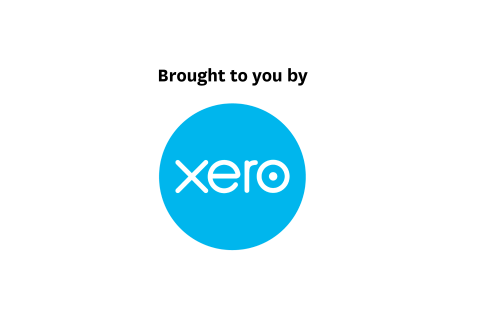Small business accounting.
If you’re starting a business, then you’ll need to get familiar with some accounting basics.

What is accounting?
Accounting tracks money as it comes and goes from a business. Some of that information is reported to the government to calculate taxes. But mostly the information helps you manage the business better.
Small business accounting basics
Accounting is a massive topic, but for most small businesses it boils down to:
- Keeping records of business transactions (basic bookkeeping)
- Creating accounting reports to help manage the business
- Dealing with taxes.
1. Keeping records of business transactions (bookkeeping)
A reliable and up-to-date picture of income versus costs will tell you:
- If you’re profitable (or at least moving in that direction)
- If you have enough cash coming in to pay upcoming bills
- Everything you (or your tax agent) needs to know to do tax returns.
This record-keeping is commonly called bookkeeping, and it’s critical to good small business accounting. You can learn what’s involved and how to do it in Xero's guide How to do bookkeeping.
Keep tabs on your expenses as soon as you start incurring them. Hold onto receipts and write down what each one was for.
Create a separate business bank account as soon as you can. Then your bank statement will double as a record of all your expenses.
2. Creating reports to help manage the business.
If you’re working in the business, you’ll have a rough idea of how things are going. But you’ll want to base your strategic decisions on something more than instinct and gut feel. Small business accounting gives you the insights you need.
Things to check weekly
Sales: There’s no money without sales, so it makes sense to keep a close watch on them. Just remember to consider the wider context. For example, extra sales often come with extra costs.
Profit: Make sure you get to keep some of those sales dollars after costs and taxes are taken out. Check your net profit margin, too. It shows what percentage of sales revenue becomes profit.
Wages: Wages are probably your most variable cost. It pays to keep an eye on them. Smart staffing decisions can go a long way to improving profitability.
Money owed to you: Check your invoices are getting paid. Late payments mean less money in the bank, which creates all sorts of unpleasant knock-on effects for the business and your personal wellbeing.
Things to check monthly
Budget vs actuals: See if things are going as planned. If not, why not?
Liabilities: Stay on top of what’s owed across loans, bills and taxes.
Cost of goods sold: Stay aware of inventory, transportation and storage costs to get your pricing right.
Last year vs this year: Compare numbers from the same month last year to see if the business is getting stronger.
How to stay on top of the numbers
Your small business accountant or bookkeeper can help pick the most important numbers for your business. You can both also get those numbers on a live dashboard using software like Xero.
3. Dealing with taxes.
Tax is one of the first things that come to mind when you think about small business accounting, and for good reason. Mistakes can be costly. The three most common forms of tax are:
- Income tax: Where you pay a portion of profits to the government
- GST: Where you add a tax to your sale prices and later pay that money to the government. This only applies if you’re GST registered
- Employee-related taxes: Where you collect tax from employee pay and send it to the government.
Lowering your business taxes
Business costs reduce your taxable income and therefore your tax bill, so make sure they’re all accounted for. You need specialist knowledge to work out what all your deductible costs are. Get help from a small business accountant.
Get help from an accountant or bookkeeper
A professional can make tax time so much simpler. They can also produce financial reports to show how the business is doing.
Things you should know.
The opinions expressed on this page are not necessarily those of Westpac and Westpac does not endorse or approve any goods or services to which reference is made. Westpac makes no representation as to the accuracy or currency of the materials, which are provided without taking your personal financial situation or goals into account. Westpac accepts no responsibility for the availability or content of any third party material to which this page may refer.
Any tax information provided in this webpage is general in nature and for illustrative purposes only; it does not constitute tax advice and should not be relied on for tax purposes. You should seek professional advice on the tax implications of your investments based on your particular circumstances. Westpac accepts no responsibility for the tax consequences of investments to you or any third parties.
Originally published by Xero. Find out more about Xero's accounting software for your small business.
